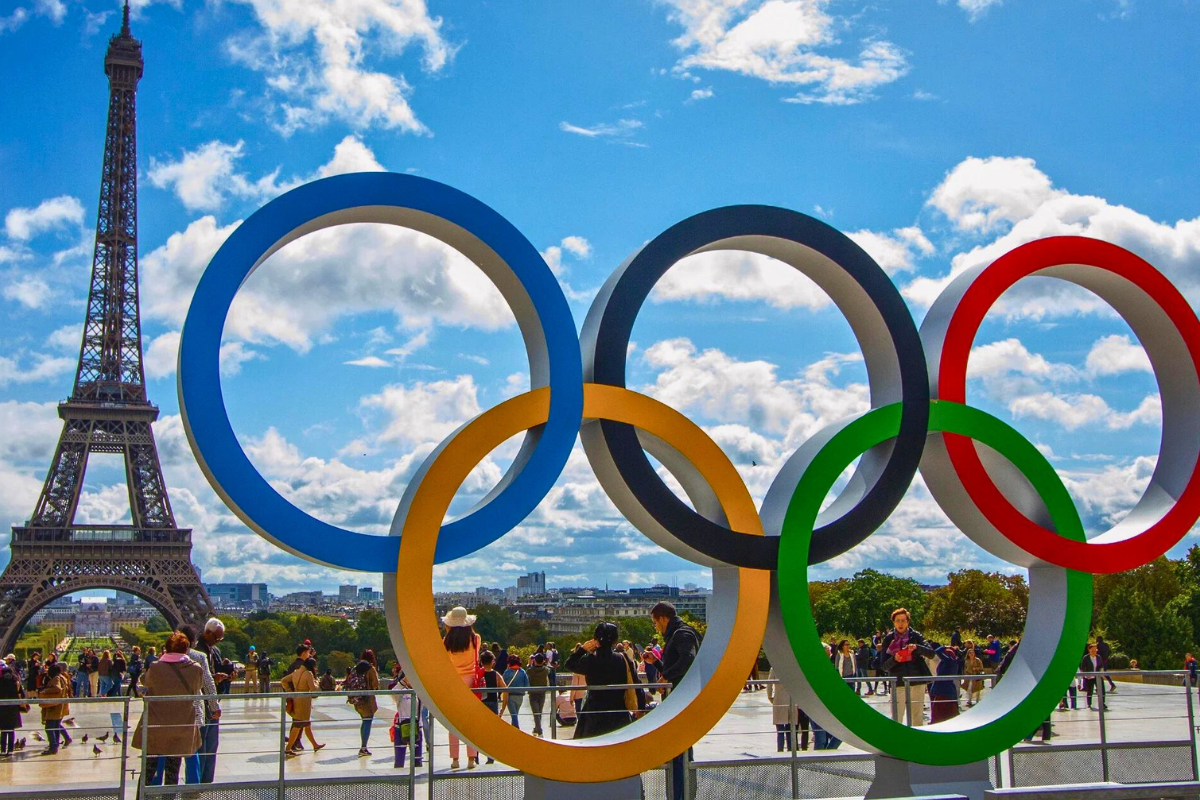The good: The efforts to include vegan meals at the Olympic Village are gold-medal worthy. Sixty percent of the 13 million meals served will be meatless; a third will be vegan—that’s record breaking. Meals ranging from vegan versions of gametime classics like hot dogs to fancier offerings like a veggie bourguignon, cauliflower and baked potato with turmeric; bell pepper shakshouka, meatless moussaka, crispy quinoa muesli, and zaatar sweet potato with hummus and chimichurri will aim to fuel support staff, employees, onlookers and the Olympians themselves.
Speaking of Olympians, cheers to these who have been vegan for six or more years featured in Green Queen:
● Widely regarded as the greatest WNBA player of all time, Diana Taurasi went vegan in 2016, and has credited her vegan diet for her success. The five-time Olympic gold medallist (a U.S. basketball record) has spoken of the faster recovery times that are helping her do things now, at 42, that she couldn’t at 28.
● A specialist in 400m hurdles, German athlete Constantin Preis went vegan in 2018, a year after cutting out meat from his diet. He made the change following muscle tears, strains and back issues. Preis has spoken about the importance of whole foods like beans, which have similar iron, protein and micronutrient levels to poultry.
● You might know her from The Game Changers, the Netflix documentary that explores the lives of vegan athletes, but Morgan Mitchell has been vegan for a decade now. A former 400m runner, she now specializes in the 800m distance, and is heading to her third games as a vegan Olympian. She has cited faster recovery, easier weight management and better overall health as the key outcomes of her dietary shift.
● Following a career-threatening injury in 2017, champion épée fencer Vivian Kong Man Wai turned to a vegan diet. After initial struggles with prejudice from home, the results speak for themselves: She has since competed in two Olympic Games, won the Asian Championships, and climbed to the top of the world rankings.
● A veteran of the USWNT, soccer player Alex Morgan has been following a vegan diet since 2017. A two-time Olympic medalist (including Gold at London 2012) and FIFA World Cup Winner, she went vegan for ethical reasons, but noticed a huge drop in her cholesterol and fatigue levels, as well as an accelerated recovery time.
● One of the greatest tennis players of all time –and another star of The Game Changers – Novak Djokovic is heading for his fifth (and likely final) Olympics at Paris to try and win the elusive gold – and is doing so on the back of a vegan diet, which he switched to in 2015.
Could Paris 2024 convince more Olympians to go vegan? We hope so!
The bad: Equestrian events have been a part of the Games since the early 1900s, but just because it’s normalized, doesn’t mean it’s not dangerous and cruel. Olympic equestrian disciplines, especially cross country, should be under siege just as horse racing in this country is. Horses are forced to run at incredibly high speeds while clearing several high-risk jumps of all heights, widths and sizes. A report published in 2022 revealed that “in the past five years alone, there have been 13 rider and 10 horse deaths worldwide as a result of horse falls at cross-country fences.” Alarmingly, the Paris cross-country course spans 3.29 miles and has 27 obstacles—this is even longer than in the Tokyo games, where the course was shortened because of the climate and horse welfare considerations.
The ugly: If you need to beat a horse to do a sport, it’s not a sport, it’s animal cruelty.
We can’t unsee the video of Britain’s Charlotte Dujardin, one of the world’s most renowned dressage riders and Olympic Medalist, repeatedly striking a distressed, innocent horse being ridden by another person as an onlooker has the audacity to laugh.
It surfaced a day after Dujardin announced that she was pulling out of the 2024 Olympic Games.
The only good that could come from this sadist’s actions is that equestrian events be eliminated from the Los Angeles 2028 Olympics.
This is not the first time the ugly side of dressage surfaced recently. Earlier this month, Carina Cassoe Kruth, a Danish rider, also withdrew from the Games because of footage showing her “training” a horse in an unacceptably rough manner. In May, the FEI, the sport’s global governing body, began an investigation into Evi and Tanya Strasser, a Canadian dressage duo, for alleged equine maltreatment. In February, Cesar Parra, an American dressage rider who competed for his native Colombia at the Athens Olympics in 2004, was filmed striking a horse that he was riding in the head. And last November, Olympic medalist Andreas Helgstrand was removed from the Danish national dressage team, following an investigative television program that documented welfare issues at his sales and training facility. Inside the barn a journalist found horses with welts from whips, mouth sores that were not given time to heal and spur marks that were disguised with shoe polish when customers visited.
Please get these barbarians away from animals. If they want to compete in some other summer Olympic sport like swimming or cycling, so be it. Let them risk harming themselves in competitions, not horses!

